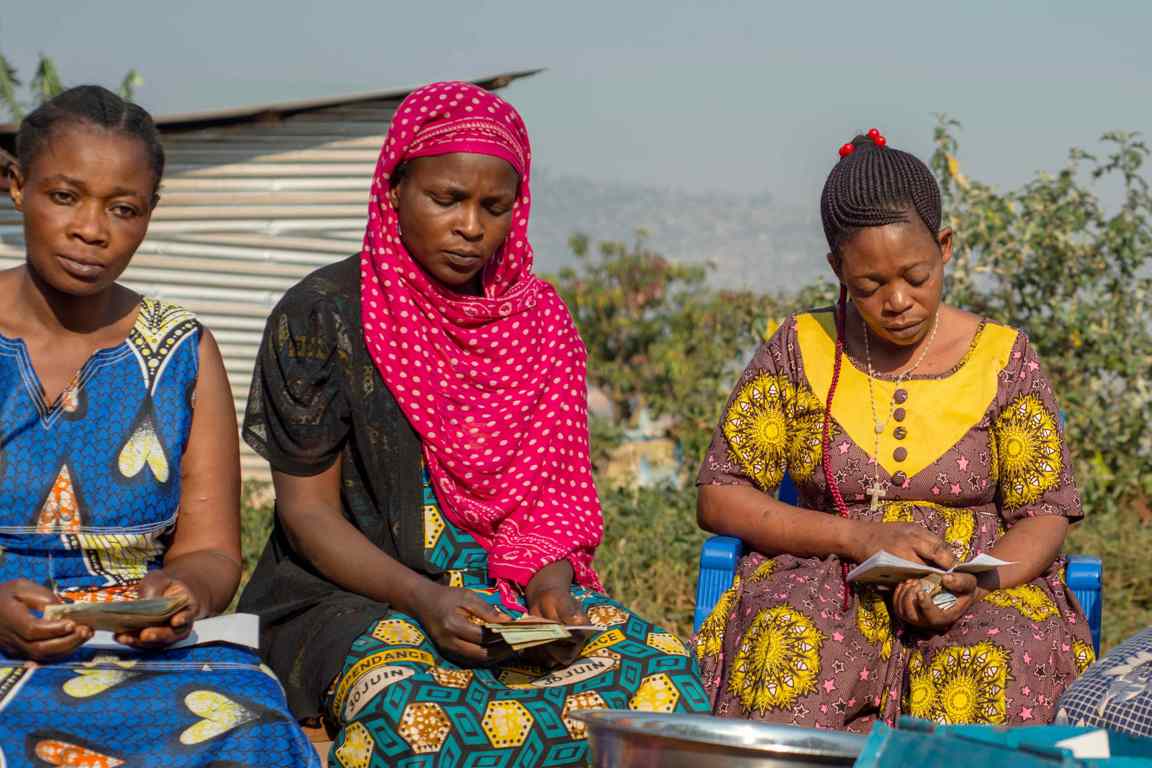The impact of education and skills training
Education and skills training are the key to freedom for many women and children around the world. The consequences of not having enough income can be dire for families living in vulnerable communities.
Rosalie from the Democratic Republic of Congo (DRC) was forced to become a child soldier when her mother couldn’t afford to send her to school. When Rosalie was finally free from her military life, skills training allowed her to break the cycle for her children.

Rosalie and two other women undergoing skills training in the Democratic Republic of Congo. Credit: Arlette Bashizi/CAFOD
Hear from Rosalie as she shares her journey
Poverty and lack of access to education often go hand in hand, creating a vicious cycle that is difficult to break. Without education, women are more likely to experience:
Dependence on power dynamics
When women don’t have employability options, the autonomy they have over their life is greatly reduced.
Within families, this can lead to very vulnerable power dynamics and a high dependency on the income-earning member of the household.
In patriarchal societies, this can mean that women are reliant on their husband and have little autonomy over their own lives. It can, in some cases, mean that women do not have the financial freedom to leave domestic violence situations.
Becoming child soldiers:
The many children around the world that become associated with armed forces and groups is startling.
It's estimated by the advocacy group Child Soldiers International that in 2017, more than 10,000 children became soldiers in at least 18 armed conflicts worldwide. The UN reports that most of these children are under the age of 15.
It may be hard to understand how something so insidious can happen. Some children are abducted and forced into joining military groups and others do so to escape poverty.
Limited employment options:
Being trapped in low paying job, or having no access to income at all can perpetuate the economic vulnerability faced by women.
It can mean that they aren’t able to use their skills profitably and their potential becomes unrealised.
When women can’t harness and apply their diverse skills and perspectives within the workforce, communities also miss out on the opportunity for valuable development and innovation.
Negative impacts on wellbeing:
When women don't have access to education and employment opportunities, their overall wellbeing is profoundly impacted.
The absence of financial resources becomes a barrier to fulfilling basic needs like nutritious food, secure shelter, proper clothing, and essential healthcare.
These limitations directly undermine the physical health and emotional wellbeing of women and their families, continuing the cycle of poverty and disadvantage.
50 percent
higher chance of survival past the age of 5 for children born to mothers who have completed secondary education - The World Bank
15 million
girls of primary school age are out of school in low-income countries - UNESCO Institute for Statistics (UIS).
12 percent
of women living in extreme poverty could be reduced if all girls completed primary education. - The United Nations
#WomenForTheWorld
Along with your generous support, the skills training programs mentioned are also supported by the Australian Government, through the Australian NGO Cooperation Program (ANCP).












